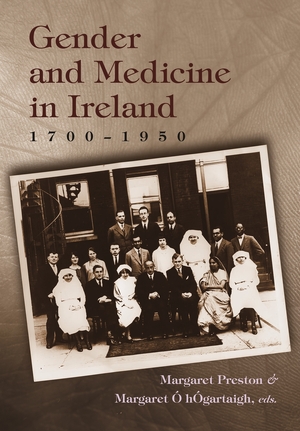"As this edited collection demonstrates, gender matters. And understanding how gender influenced medical services and practices not only helps us understand the past, but also the present."—Canadian Journal of Irish Studies
Description
The essays in this collection examine the intersections between gender, medicine, and conventional economic, political, and social histories in Ireland between 1700 and 1950. Gathering many of the top voices in Irish studies and the history of medicine, the editors cover a range of topics including midwifery, mental health, alcoholism, and infant mortality.
Composed of thirteen chapters, the volume includes James Kelly’s original analyses of eighteenth-century dental practice and midwifery, placing the Irish experience in an international context. Greta Jones, in an exploration of a disease that affected thousands in Ireland, explains the reasons for higher tuberculosis mortality among women. Several essays call attention to the attempted containment of disease, exploring the role of asylums and the gendered attitudes toward insanity and reform. Contributors highlight the often neglected impact of nurses and midwives, occupations traditionally dominated by women.
Presenting a social history of Irish medicine, the disparate essays are united by several common themes: the inherent danger of life in eighteenth- and nineteenth-century Ireland, the specific brutality of women’s lives at the time, and the heroics of several enlightened figures.
About the Author
Margaret Preston is associate professor in the Department of History at Augustana College in South Dakota. She is the author of Charitable Words: Women, Philanthropy, and the Language of Charity in Nineteeth-Century Dublin.
Margaret Ó hÓgartaigh is the author of numerous books, including Kathleen Lynn: Irishwoman, Patriot, Doctor; Edward Hay, Historian of 1798: Catholic Politics in the an Era of Wolfe Tone and Daniel O'connell; and Quiet Revolutionaries: Irish Women in Education, Medicine, and Sport, 1861–1964.
November 2012

